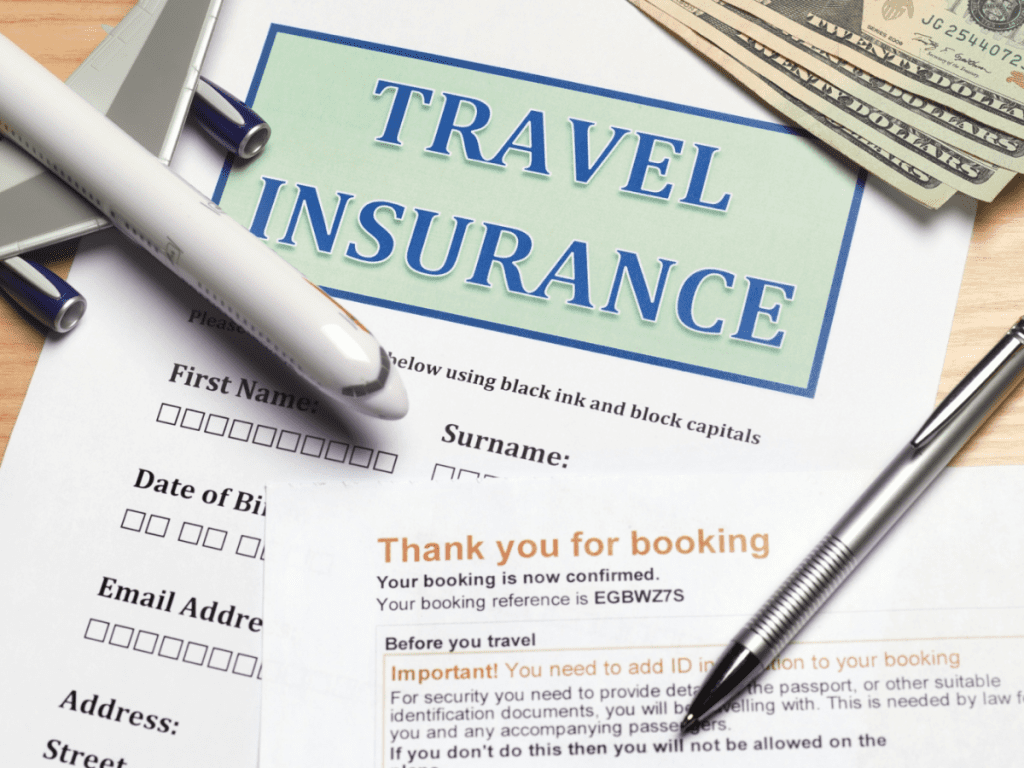Introduction
Traveling is one of the most enriching experiences a person can have. Whether it’s for leisure, work, or visiting loved ones, traveling opens up new worlds and perspectives. However, along with the excitement of planning itineraries, booking accommodations, and packing bags, there’s an essential consideration often overlooked by many travelers: travel insurance. Far from being just another travel expense, travel insurance is a smart investment that offers peace of mind and protection against unforeseen circumstances. This comprehensive guide explores why travel insurance should be a non-negotiable part of your trip planning.
The Basics of Travel Insurance
Travel insurance is a financial safety net that provides coverage for various risks associated with traveling. These risks can range from trip cancellations and medical emergencies to lost luggage and travel delays. Policies are designed to mitigate the financial burden of unexpected events, ensuring that travelers can focus on enjoying their journeys rather than worrying about potential mishaps.
Types of Coverage
Travel insurance policies vary, but most include the following key areas of coverage:
- Trip Cancellation and Interruption: This coverage reimburses you for non-refundable expenses if you need to cancel or cut short your trip due to unforeseen circumstances such as illness, natural disasters, or family emergencies.
- Medical Emergencies: Travel insurance often includes coverage for medical expenses incurred during your trip. This is especially crucial when traveling internationally, where healthcare costs can be exorbitant.
- Emergency Evacuation and Repatriation: In the event of a severe medical emergency, travel insurance covers the cost of evacuation to the nearest medical facility or your home country.
- Lost, Stolen, or Delayed Baggage: If your luggage is lost, stolen, or delayed, travel insurance compensates you for essential items and replacement costs.
- Travel Delays: Coverage is provided for additional expenses incurred due to flight delays, such as meals and accommodation.
- Accidental Death or Dismemberment: This benefit provides financial compensation to you or your beneficiaries in the event of severe injury or death while traveling.
The Importance of Travel Insurance
Many travelers underestimate the significance of travel insurance, often dismissing it as an unnecessary expense. However, the reality is that travel insurance can save you from substantial financial losses and provide invaluable support in times of crisis.
1. Protection Against Unforeseen Circumstances
Life is unpredictable, and even the most meticulously planned trips can go awry. A sudden illness, family emergency, or political unrest in your destination can derail your travel plans. Without travel insurance, you may lose non-refundable deposits and face significant out-of-pocket expenses. Travel insurance ensures that you’re financially protected, allowing you to reschedule or cancel your trip without bearing the full brunt of the costs.
2. Healthcare Coverage Abroad
One of the most critical aspects of travel insurance is medical coverage. Healthcare systems vary widely across countries, and the costs can be astronomical in some regions. For instance, a simple hospital visit in the United States can cost thousands of dollars. Travel insurance covers these expenses, ensuring that you receive the care you need without financial strain.
3. Peace of Mind
Traveling can be stressful, especially when unexpected problems arise. Knowing that you have travel insurance provides peace of mind, allowing you to focus on enjoying your trip. Whether it’s a lost passport, a delayed flight, or a medical emergency, travel insurance acts as a safety net, offering assistance and financial support when you need it most.
4. Coverage for High-Risk Activities
If your trip involves adventurous activities such as skiing, scuba diving, or hiking, travel insurance is even more critical. Many policies include coverage for accidents and injuries related to such activities, ensuring that you’re protected while pursuing your passions.
5. Support During Emergencies
In addition to financial coverage, many travel insurance providers offer 24/7 assistance services. These services can help you locate medical facilities, replace lost passports, or arrange emergency transportation. Having access to such support can be a lifeline in unfamiliar territories.
Real-Life Scenarios Highlighting the Value of Travel Insurance
To truly understand the importance of travel insurance, consider these real-life scenarios:
- Medical Emergency Abroad: Imagine you’re on vacation in a remote location and suffer a severe injury. Without travel insurance, you’d need to cover the cost of medical treatment and emergency evacuation, which can run into tens of thousands of dollars. With travel insurance, these expenses are covered, ensuring you receive the necessary care without financial distress.
- Trip Cancellation: You’ve planned a dream vacation, but a week before departure, a family member falls critically ill. Without travel insurance, you’d lose the money spent on non-refundable flights and accommodations. With insurance, you can recover these costs and reschedule your trip.
- Lost Luggage: Upon arriving at your destination, you discover that your luggage is missing. Travel insurance provides compensation for essential items and replacement costs, allowing you to continue your trip without disruption.
- Natural Disaster: A hurricane strikes your destination, forcing you to cancel your trip. Travel insurance reimburses you for non-refundable expenses and helps you make alternative arrangements.
Choosing the Right Travel Insurance Policy
Selecting the right travel insurance policy is crucial to ensuring adequate coverage. Here are some tips to help you choose:
- Assess Your Needs: Consider the type of trip you’re taking, the activities you’ll engage in, and your destination. For example, international travel requires comprehensive medical coverage, while adventure trips may need additional coverage for high-risk activities.
- Compare Policies: Research and compare policies from multiple providers. Pay attention to coverage limits, exclusions, and additional benefits.
- Read the Fine Print: Carefully review the terms and conditions of the policy to understand what is and isn’t covered.
- Consider Your Budget: While it’s important to find an affordable policy, don’t sacrifice essential coverage for a lower premium.
- Check Reviews and Ratings: Look for reviews and ratings of the insurance provider to ensure reliability and quality of service.
Common Misconceptions About Travel Insurance
Despite its importance, travel insurance is often misunderstood. Let’s debunk some common misconceptions:
- “It’s Too Expensive”: Travel insurance is relatively affordable compared to the potential costs of unforeseen events. The peace of mind it provides is well worth the investment.
- “I Don’t Need It for Short Trips”: Even short trips can be disrupted by emergencies. Travel insurance covers you regardless of the trip’s duration.
- “My Credit Card Provides Sufficient Coverage”: While some credit cards offer travel insurance benefits, the coverage is often limited. A standalone travel insurance policy provides more comprehensive protection.
Conclusion
Travel insurance is not just a wise investment—it’s an essential one. From safeguarding your finances against unexpected events to providing invaluable support during emergencies, travel insurance ensures that you can travel with confidence and peace of mind. As you plan your next trip, make travel insurance a priority. It’s a small price to pay for the security and assurance that your journey will be as enjoyable and stress-free as possible. Remember, the smartest travelers aren’t just those who pack wisely or find the best deals—they’re the ones who prepare for the unexpected with comprehensive travel insurance.

